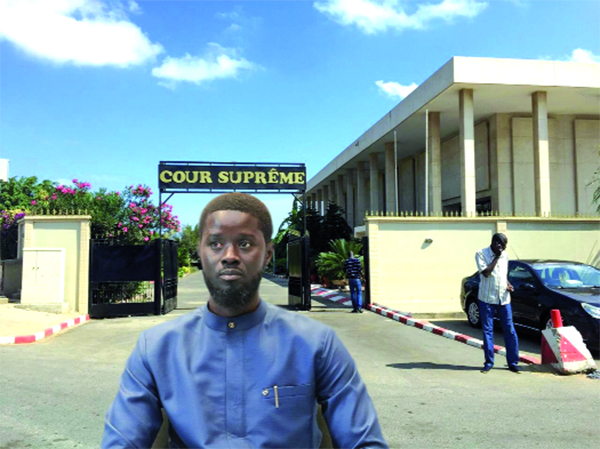Consultations on Justice Reform: Diomaye Reinvents the Wheel

Several dozen people will be taking part in the Conferences on Justice, which opens this Tuesday in Diamniadio, with Pr Babacar Guèye chosen as facilitator. After an initial controversial list, the Ministry of Justice has backpedalled by announcing another. Similar work was carried out in 2018, although the conclusions were not implemented.
The Conferences on Justice will open this Tuesday. For this high mass devoted to discussions on the modernization and reform of the justice system, President Bassirou Diomaye Faye has appointed Professor Babacar Guèye as facilitator. The initiators of this event, who wanted to adopt an inclusive approach, drew up a long list of various participants. Even though, this list includes almost all political organizations, civil society, the professional sector, former justice ministers and law professors, the absence of the public prosecutors of the appeal courts, heads of jurisdiction and other heads of public prosecutor’s offices is noted. This absence is all the more worrying as “they are the ones who are confronted with these realities daily”.
Diplomatic Agenda and Presidential Trips: Diomaye Keeps his Course
While the latter are not invited to the meeting, the list includes former prisoners such as “Cheikh Tidiane Gaye, Pape Abdoulaye Touré, Cheikh Bara Ndiaye, Maty Sarr Niang, Ndèye Fatou Fall (Falla Fleur), Outhmane Diagne, Clédor Sène”, among others. The case of the latter, convicted of the murder of Lawyer Babacar Sèye; former vice-president of the Constitutional Council, before being pardoned, bothers some.
A “working basis” list and controversy
Faced with the raging controversy, the Ministry of Justice issued a statement clarifying the controversial list. For Ousmane Diagne, the list in question “was just a working basis”. “Since yesterday, we have seen the publication and sharing of a list of participants invited to the National Dialogue on Justice. We wish to inform the public that this list does not emanate from the services of the Ministry of Justice, and is far from exhaustive », the note states. “The definitive list will be available shortly”, promised the Ministry of Justice, who apologized “for any inconvenience caused”.
2018 Consultations
It’s worth noting that the government had organized a series of consultations on the reform of the justice system. Most of the personalities invited to this event had discussed these issues or were part of the consultation committee, including former ministers of justice, academics, bar presidents and civil society organizations, with very specific recommendations: the functioning of the Supreme Council of the Judiciary and the Public Prosecutor’s Office, the careers of magistrates, the independence of the judiciary and the judicial map. In truth, the diagnosis has been made, what remains is to apply the remedies.
Read the column – For the People to Judge in the Place of Magistrates
Last Friday, in an interview with the Senegalese Press Agency, the Minister of Justice announced that the conference was convened “to improve the public service of Justice, Justice rendered in the name of the Senegalese people, and to enable Justice to meet its primary objectives, i.e. to reconcile Justice with the people, who must be its main beneficiaries”. Ousmane Diagne stressed that the objectives assigned to these meetings “consist solely in making a diagnosis, so that all these supposed or real dysfunctions can be identified and the means of remedying them can be envisaged in the best interests of the Republic”.
Still on the subject of the conference scheduled for May 28, Mr. Diagne stated that it will be an open debate “involving the general public, justice professionals and all segments of society”. And from this point of view, he had declared, “it is normal that we should first identify the ills and allow everyone to give their opinion”. Because, he argued, “Justice is not just a matter for magistrates and legal professionals, since it is dispensed in the name of the Senegalese people”.
By Dieynaba KANE / dkane@lequotidien.sn

